Project Name:
BLACCH Study
Funding Dates:
Status:
Completed
Principal Investigators:
Shamara Baidoobonso* (UWO), Greta Bauer* (UWO), Mercy Nleya-Ncube* (RHAC & ACCHO), Monica Abdelkader* (London Cross Cultural Learner Centre), Shamara Baidoobonso* (UWO),
Description:
The BLACCH Study is a mixed‐methods community‐based research project designed with the goal of improving health care access and the health status of Black people from Canada, Africa, the Caribbean and other parts of the world, who reside in London and Middlesex County, Ontario. To explore health and HIV in London and Middlesex County’s ACB communities. The study’s main purpose is to improve health promotion and HIV prevention programming.
Purpose and Objectives:
1) Provide evidence that will help health and social service providers design effective health promotion and disease prevention programs and services for ACB communities in London and Middlesex County, Ontario; 2) Improve understanding about how the social determinants of health (such as educational attainment, employment status, gender, health care services, income and poverty, social networks, and migration/ immigration) act individually and in combination to impact the health of ACB people in London and Middlesex County, Ontario; 3) Build the capacities of partner organizations so that they may use the research findings to better serve ACB communities; and 4) Increase the capacities of individual team members and the larger community to conduct health research.
Method:
Mixed-methods, community-based research project
Population:
ACB community
Region:
London and Middlesex, Ontario
Start and End Date:
Results:
Some of the highlights from this report (and study) include capturing definitions of health that were holistic, including physical, emotional, spiritual and mental health. Efforts to promote health and prevent illness in ACB communities should, thus, be holistic and include faith-based leaders as well as healthcare providers, such as doctors. ACB communities are apparently concerned about chronic health conditions (e.g. diabetes) that can be prevented through diet and exercise. Income and employment are other important issues for ACB people, aside from general needs this can be related to responsibilities, such as sending money to relatives and friends in their countries of origin. Material needs are also greater in Canada; these factors can cause high levels of stress. While many people had been tested for HIV during the immigration process, few people are being tested for HIV when they have new sexual partners. Further, community development initiatives must be broad‐based and reflective of diversity, age, gender, ethnicity, region of origin, length of time in Canada, language, etc. Finally, doctors and other health care providers should be aware that mental health is viewed more holistically, and stigma related to mental health prevents many ACB people from accessing mental health services.
Project Indicators and Outcomes:
Funding Sources:
OHTN

